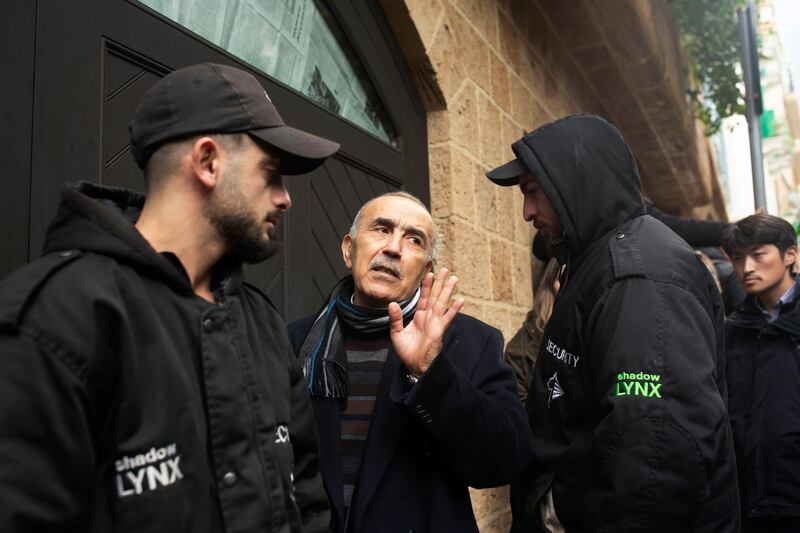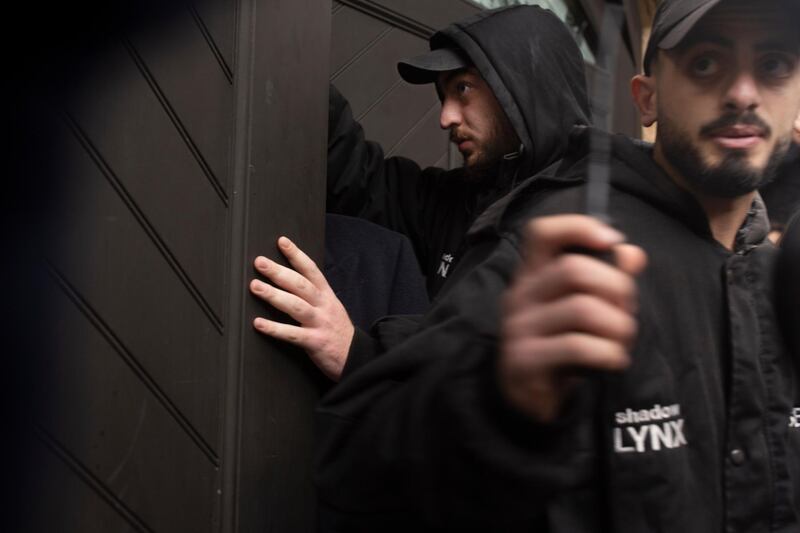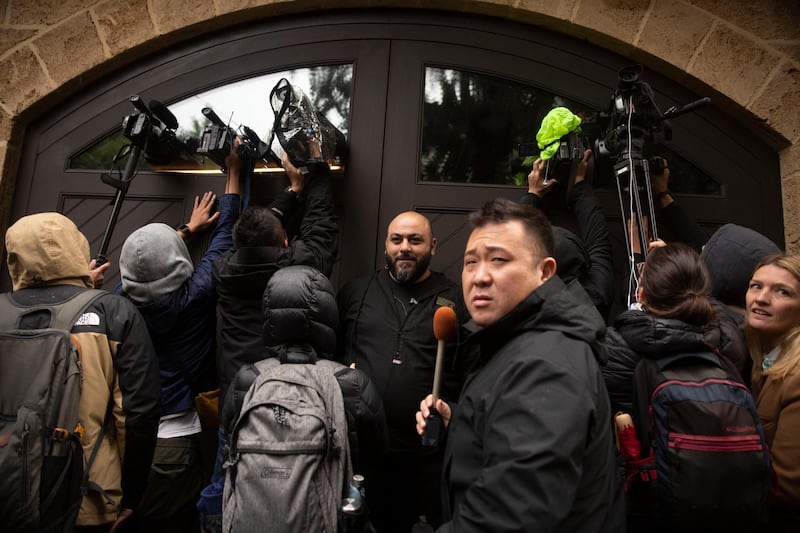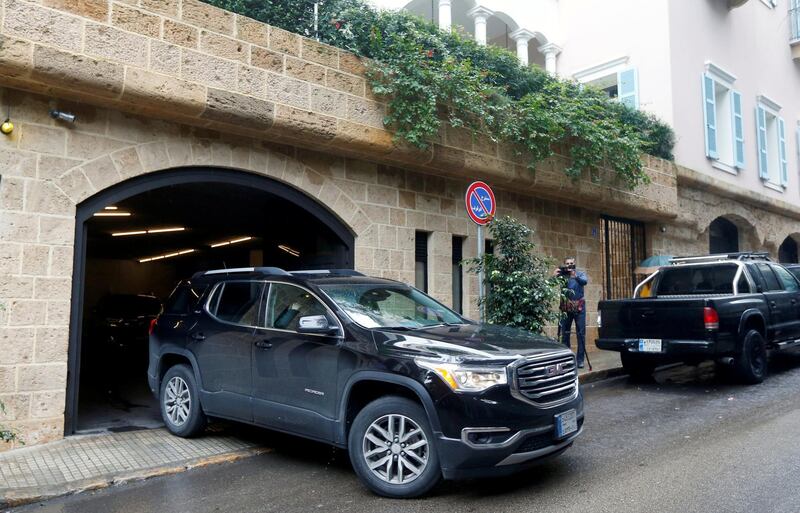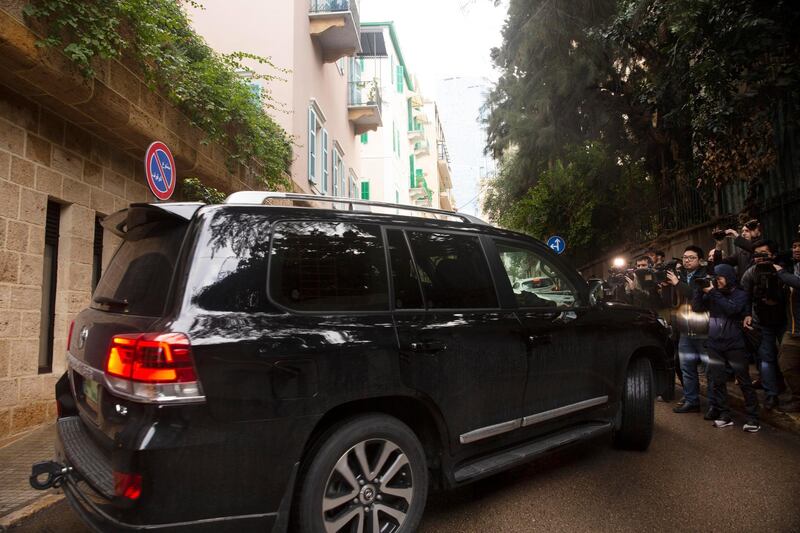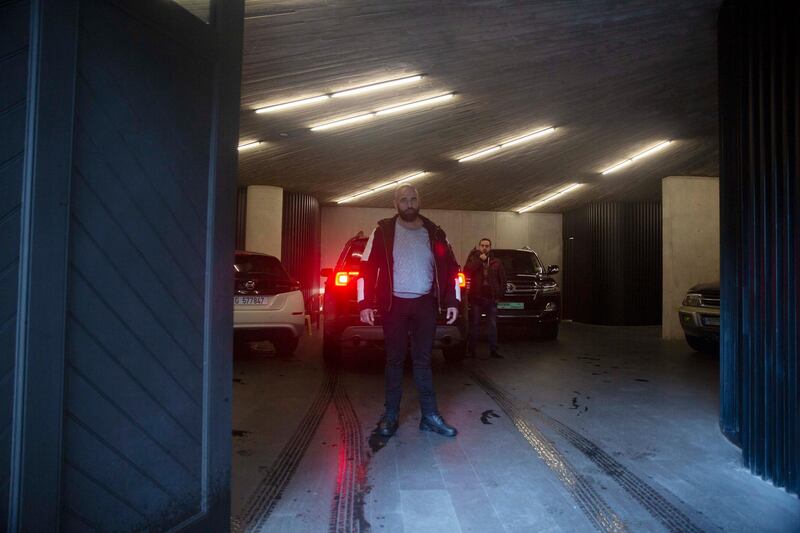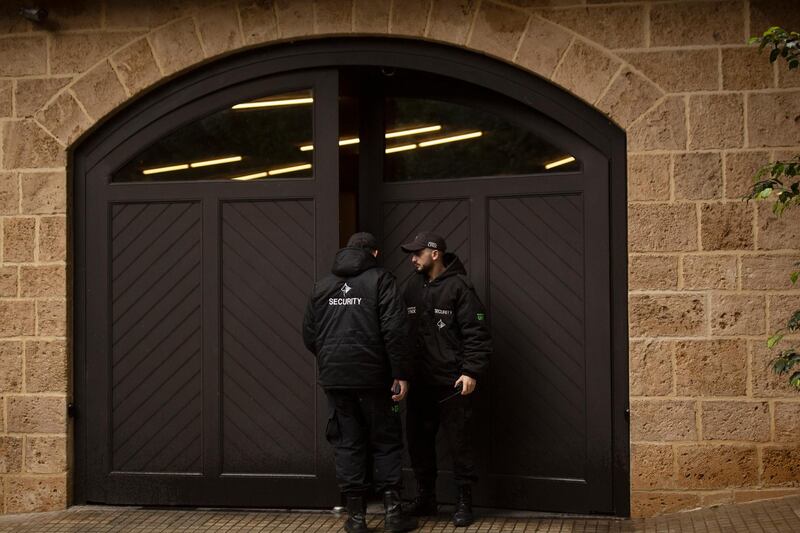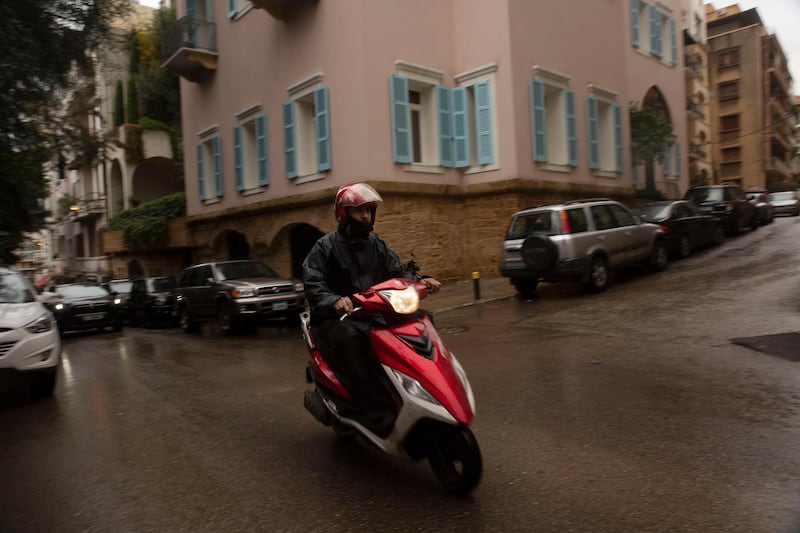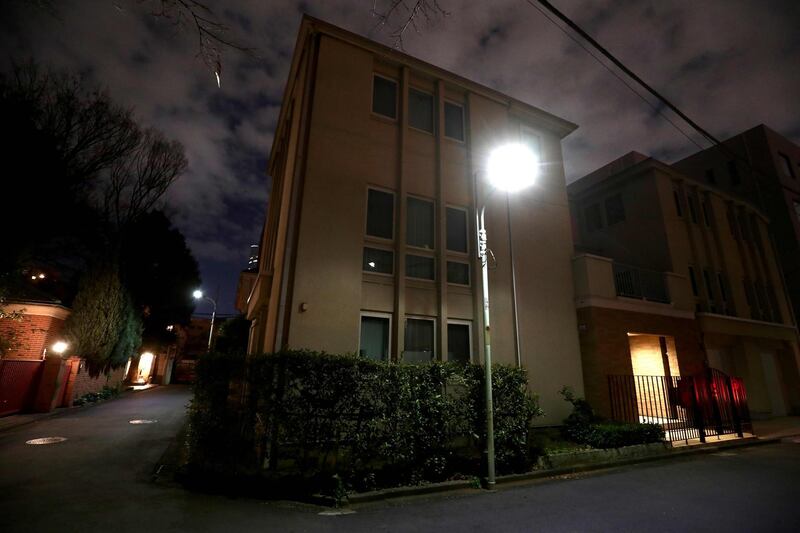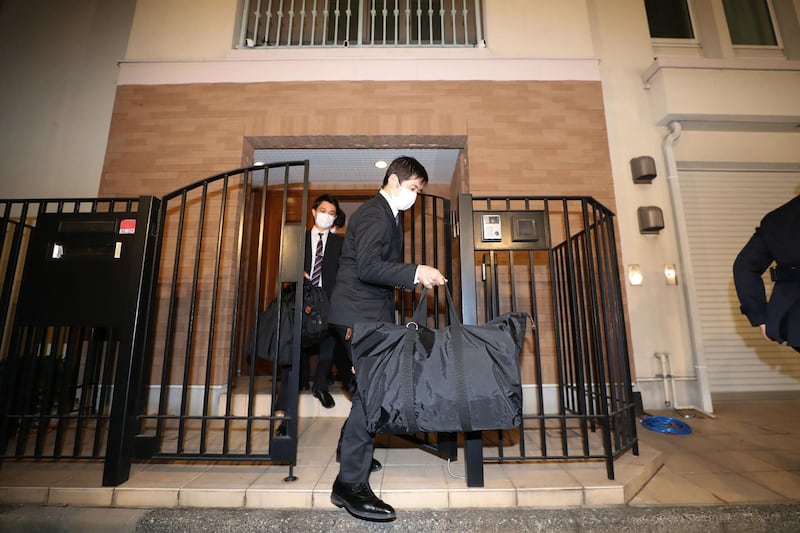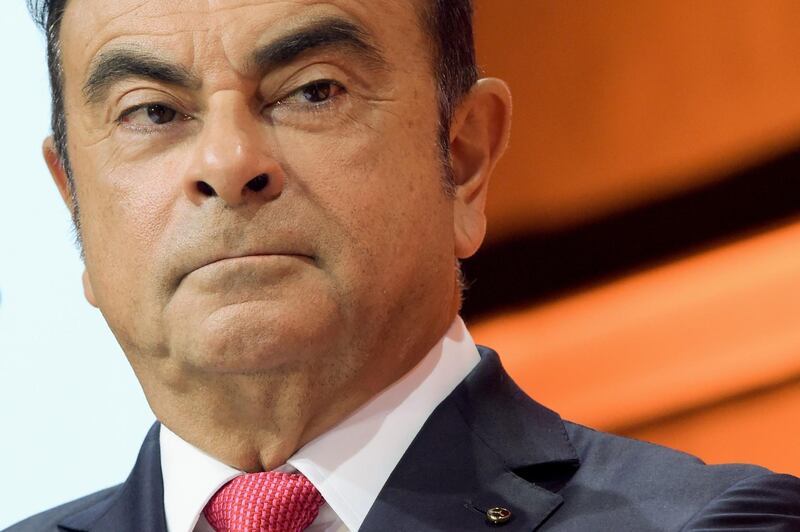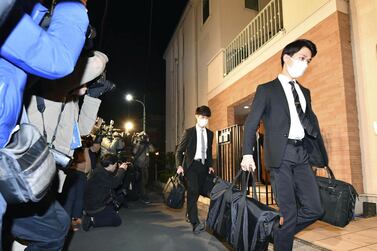Carlos Ghosn’s house in Beirut is easy to spot. Despite the rain, a handful of Japanese journalists stand guard, tracking every movement inside the elegant 1930s pink mansion in the upmarket neighbourhood of Ashrafieh as tight-lipped neighbours rush past, hidden under their umbrellas.
But the former Nissan boss was nowhere to be seen. His exact whereabouts remains unknown since he arrived in Lebanon on Tuesday after an as-yet mysterious escape from Japan where he was on bail awaiting trial for financial misconduct charges.
"Even if we knew where he was, we would not tell you for his own safety," a Lebanese police spokesperson told The National. Mr Ghosn has, however, announced via his lawyer that he would hold a press conference on January 8.
On Thursday afternoon, Lebanon's caretaker Justice Minister Albert Serhan said he had received an Interpol warrant for Mr Ghosn. His office did not respond to a request for comment from The National.
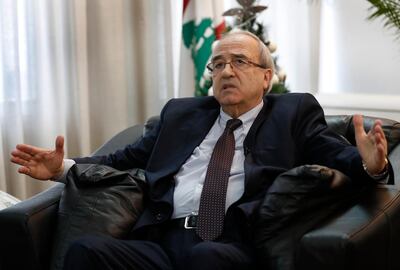
But Mr Serhan issued a statement on Thursday saying that authorities would assess the Interpol red notice but without a reciprocal extradition treaty with Japan, Lebanese domestic law would be applied.
Lebanese authorities had previously claimed that they did not need to investigate Mr Ghosn’s arrival in the country because he entered legally on a French passport with a Lebanese ID.
However, Turkey announced on Thursday that it had arrested seven people, including four pilots, as part of an investigation into Mr Ghosn’s brief layover in Istanbul as he fled from Japan to Lebanon. In parallel, Japanese authorities raided his Tokyo house.
Reports from the Financial Times allege that Lebanon lobbied for Mr Ghosn’s extradition shortly before he slipped out of Japan.
Lebanon’s refusal to investigate Mr Ghosn has been met with exasperation by political activists who have been campaigning hard for more transparency from the country’s elite since anti-government protests erupted on October 17.
“It’s a reminder of the lack of transparency in Lebanon. We do not know to what extent Lebanon was involved in his escape. It’s very opaque,” said activist and filmmaker Lucien Bourjeily. “Everyone in the world is talking about Carlos Ghosn but in Lebanon, it’s like nothing happened.”
For economist Jad Chaaban, who has been active in the protests, Mr Ghosn’s escape to Lebanon is bad for the country’s image.
"It's very worrying that Lebanon is seen as a haven for people fleeing justice and accountability," he told The National. "What is clear now is that he is benefitting from his status as someone who has a lot of money and connections."
Mr Ghosn has maintained his innocence throughout the proceedings against him and claims that the case is unfair and politically motivated.
But Lebanon is widely perceived as being corrupt, both by protesters and politicians, and very few officials have been jailed for graft in recent years.
Activists and judges have previously told The National that the local judicial system is sensitive to political pressure making such trials difficult.
Delicate extradition requests are usually ignored. In past cases in which Lebanon has received red notices for Lebanese nationals in the country, the suspects' passports have been confiscated and a bail set but they have not been detained, a judicial source told Reuters.
Earlier this year, Germany asked for the extradition of Syria’s air force intelligence head, Jamil Hassan, who was believed to be seeking hospital treatment in Lebanon. But no extradition took place.
Neither Lebanon nor France have signed extradition treaties with Japan, where Mr Ghosn faced trial for financial crimes. But as French newspaper La Croix reported that he is under investigation in Paris for "active and passive corruption" and "misuse of company assets."
That is not the case in Lebanon, where he is widely admired for his professional success. In 2017, Lebanon’s national post office, LibanPost, issued a stamp in his honour and large billboards were erected to support him after his arrest in Japan in November 2018. Mr Ghosn holds Lebanese, French and Brazilian passports.
Near his Beirut home, many echoed his protestations of innocence, saying that he was the victim of a “rigged” Japanese justice system.
One man, who refused to give his name, said that “he [Mr Ghosn] is a great person and a great businessman.” He seemed unperturbed by the corruption allegations targeting Mr Ghosn.
Behind the man, the windows of the small printing shop were plastered with pro-protests posters. “It’s now or never,” the signs read.
